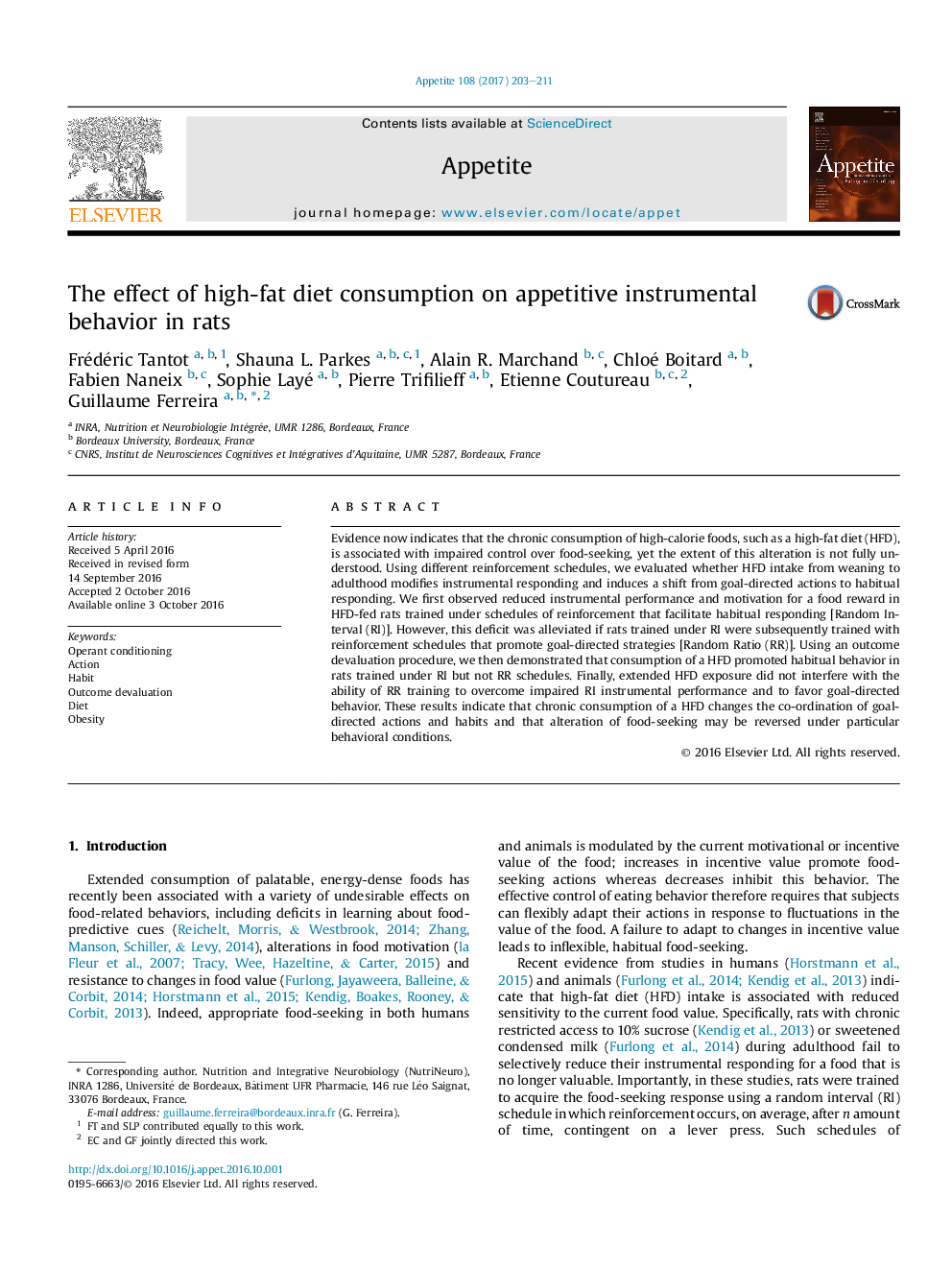| Article ID | Journal | Published Year | Pages | File Type |
|---|---|---|---|---|
| 5044404 | Appetite | 2017 | 9 Pages |
Evidence now indicates that the chronic consumption of high-calorie foods, such as a high-fat diet (HFD), is associated with impaired control over food-seeking, yet the extent of this alteration is not fully understood. Using different reinforcement schedules, we evaluated whether HFD intake from weaning to adulthood modifies instrumental responding and induces a shift from goal-directed actions to habitual responding. We first observed reduced instrumental performance and motivation for a food reward in HFD-fed rats trained under schedules of reinforcement that facilitate habitual responding [Random Interval (RI)]. However, this deficit was alleviated if rats trained under RI were subsequently trained with reinforcement schedules that promote goal-directed strategies [Random Ratio (RR)]. Using an outcome devaluation procedure, we then demonstrated that consumption of a HFD promoted habitual behavior in rats trained under RI but not RR schedules. Finally, extended HFD exposure did not interfere with the ability of RR training to overcome impaired RI instrumental performance and to favor goal-directed behavior. These results indicate that chronic consumption of a HFD changes the co-ordination of goal-directed actions and habits and that alteration of food-seeking may be reversed under particular behavioral conditions.
